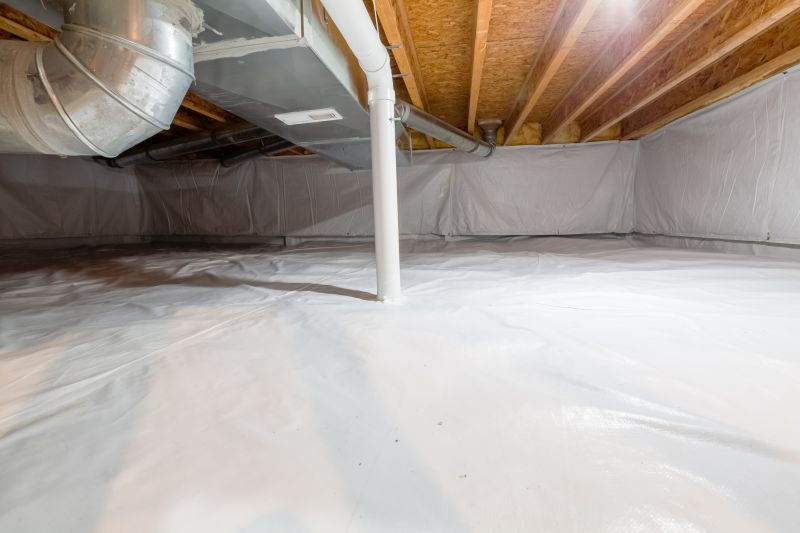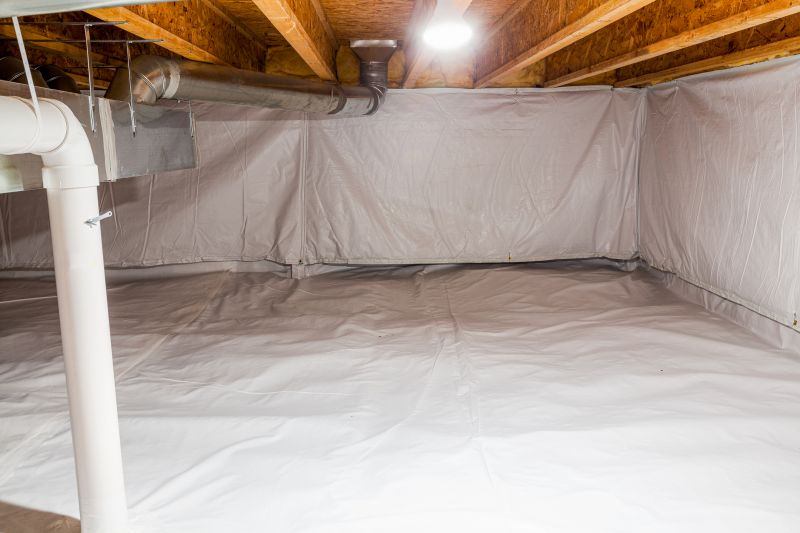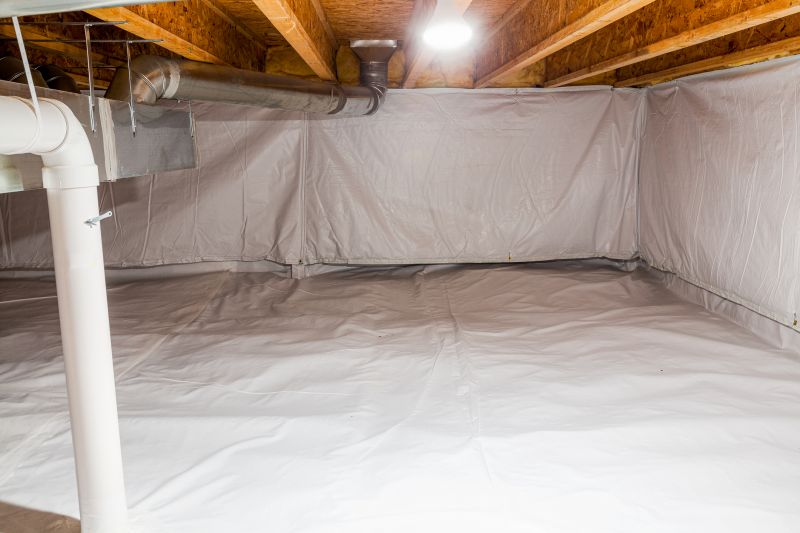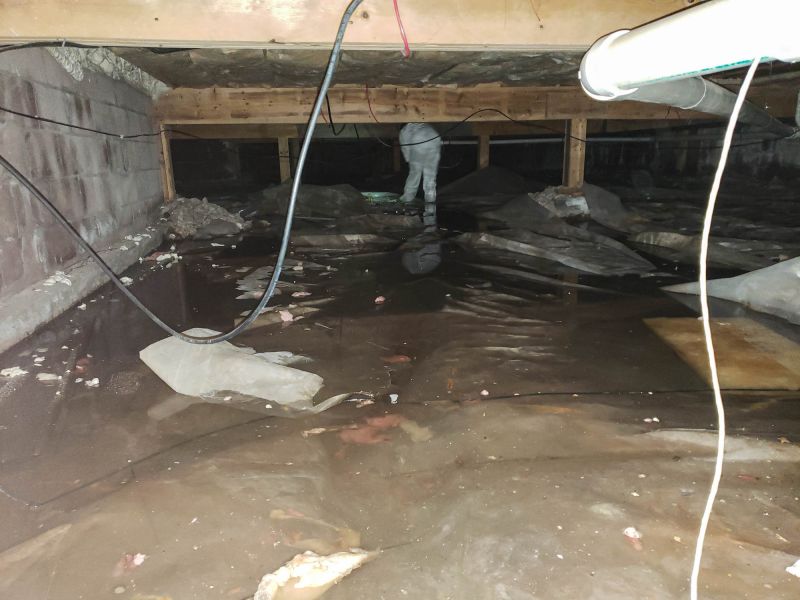Expert Crawlspace Insulation and Sealing
Crawlspace encapsulation involves sealing and insulating the area beneath a building to protect against moisture, pests, and structural damage. Proper encapsulation can improve indoor air quality, reduce energy costs, and prevent mold growth, making it a vital component of home maintenance in Granger, Indiana.
Encapsulation prevents moisture infiltration, reducing the risk of mold and wood rot that can compromise structural integrity.
Sealing the crawlspace minimizes heat loss, leading to lower heating and cooling costs throughout the year.
Reducing humidity and preventing mold growth enhances indoor air quality, promoting healthier living environments.
Encapsulation acts as a barrier against pests such as rodents and insects that can inhabit unsealed crawlspaces.

A fully sealed and insulated crawlspace with vapor barrier, showcasing the effectiveness of proper encapsulation.

Close-up of insulation and vapor barrier installed during encapsulation, highlighting quality workmanship.

A secure entry point after encapsulation, demonstrating the sealed environment.

Vent covers installed post-encapsulation to prevent air and moisture infiltration.
Failure to encapsulate a crawlspace can lead to increased moisture levels, mold growth, and pest infestations, which may cause significant structural damage and health issues. Studies indicate that unsealed crawlspaces can contribute to indoor humidity levels exceeding recommended standards, fostering mold and dust mite proliferation. Additionally, unprotected crawlspaces can increase energy bills by up to 15 percent due to heat loss. Proper encapsulation offers a reliable solution to mitigate these risks, ensuring a healthier and more energy-efficient home environment.
| Risks of Not Encapsulating | Benefits of Encapsulation |
|---|---|
| Increased mold growth | Reduces mold and moisture problems |
| Higher energy costs | Enhances energy efficiency |
| Pest infestations | Acts as a pest barrier |
| Structural damage | Protects foundation and framing |
| Poor indoor air quality | Improves air quality |
| Wood rot and decay | Prevents wood deterioration |
| Increased allergy symptoms | Reduces allergens and dust |
| Potential health issues | Supports healthier living conditions |

